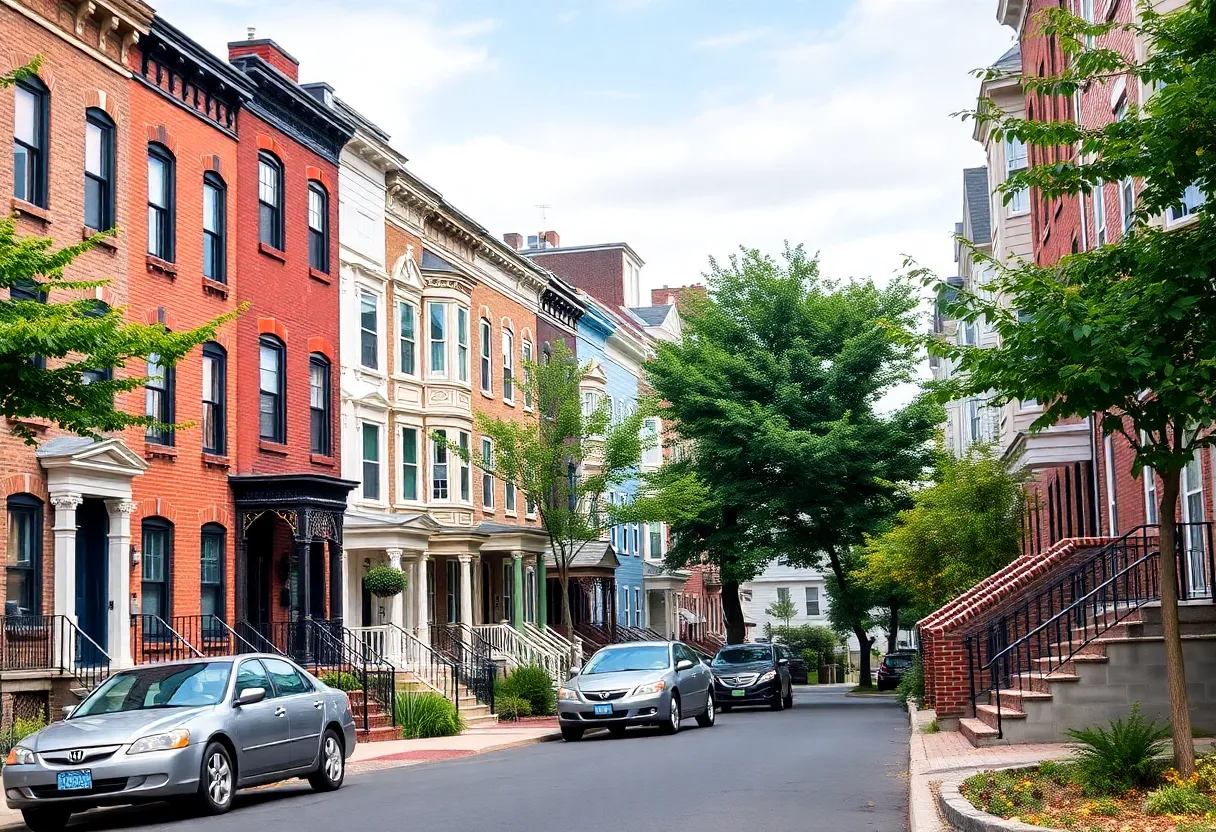How to Navigate Philadelphia’s Property Listings Like a Seasoned Pro: Essential Tips for Buyers
Introduction
Navigating Philadelphia’s real estate market requires strategic insight and meticulous planning. The city’s vibrant neighborhoods, architectural diversity, and fluctuating market conditions create a landscape both promising and complex. Successful buyers approach this process with a clear roadmap, leveraging local knowledge, financial preparedness, and effective resources. This guide distills essential tips to help prospective homeowners analyze property listings intelligently and make confident decisions.
1. Assess Your Financial Readiness
A fundamental step in home buying is evaluating your financial health. This assessment sets the foundation for your property search and influences your negotiation power.
Credit Score Considerations
A credit score of at least 620 is generally favorable for securing conventional financing. Lower scores may qualify for specialized programs but often come with higher interest rates. Regularly monitor your credit report to identify and address discrepancies. Use reliable, free tools to check your score and improve it where possible through timely payments and debt reduction.
Creating a Realistic Budget
Establish a comfortable purchase range based on your income, savings, and existing debts. A typical guideline is that your housing costs should comprise no more than 25% to 30% of your gross annual income. Factor in property taxes, homeowners’ association (HOA) fees, insurance, and maintenance costs to ensure your budget aligns with your financial capacity.
Securing Pre-Approval
Obtaining a pre-approval letter from a lender is crucial. It verifies your borrowing ability and demonstrates your seriousness to sellers. Plus, it helps you move swiftly once you identify a suitable property, preventing missed opportunities in a competitive market.
2. Understand Philadelphia’s Neighborhoods
Philadelphia boasts a rich tapestry of neighborhoods, each catering to different lifestyles and preferences.
Fishtown
Known for its dynamic arts scene and trendy vibe, Fishtown features a mix of historic rowhouses and modern developments. It attracts first-time buyers looking for a lively community with access to nightlife, restaurants, and cultural venues.
Northern Liberties
Once an industrial area, this neighborhood has transformed into a hub of creative conversions—loft apartments and contemporary townhomes dominate the landscape. It appeals to those seeking urban vibrancy coupled with proximity to downtown.
Roxborough
Offering a more suburban feel, Roxborough provides affordability and lush parks, making it ideal for families. Its quiet streets and good schools elevate its appeal for long-term residents seeking stability.
Research neighborhood amenities, schools, safety records, and development trends to determine alignment with your lifestyle goals.
3. Collaborate with a Knowledgeable Real Estate Agent
Partnering with an experienced local real estate agent enhances your buying process significantly.
Market Insights and Local Expertise
Agents versed in Philadelphia’s market understand neighborhood nuances, pricing trends, and investment opportunities. Their insights help tailor your search to neighborhoods that fit your budget and preferences.
Access to Exclusive Listings
Many off-market or upcoming listings are accessible only through agents. This expanded access increases your options, especially in a competitive environment.
Negotiation Skills
A seasoned agent advocates effectively. They can negotiate terms, clarify contractual details, and help you secure favorable conditions—be it price, closing timelines, or contingencies.
4. Utilize Online Resources and MLS
Modern property hunting benefits from digital tools:
Multiple Listing Service (MLS)
Access to MLS databases offers detailed, up-to-date listings complete with high-quality photos, descriptions, and property histories. It ensures your search is comprehensive and current.
Dedicated Real Estate Platforms
Numerous websites and mobile apps allow filtering based on price, location, bedrooms, and other features. Setting customized alerts ensures you stay informed about new listings and price adjustments.
5. Attend Open Houses and Schedule Showings
In-person visits are indispensable. They offer a real feel of the property’s layout, condition, and neighborhood ambiance.
Open Houses
Scheduled open houses afford a quick survey of multiple homes, giving you insights into market pricing, property features, and competitive offers.
Private Showings
Arrange individual visits for detailed assessments and tailored questions about renovation history, structural issues, or neighborhood concerns.
6. Conduct Thorough Property Inspections
Ensuring the property’s physical condition is critical.
Professional Inspection
Hire licensed inspectors to evaluate essential systems such as structure, plumbing, electrical, and HVAC. They identify potential issues that may influence your offer or future expenses.
Specialized Inspections
Consider additional specialist evaluations—radon testing, mold inspections, termite assessments—especially for older structures. These insights inform your negotiation strategy and long-term planning.
7. Understand the Offer and Negotiation Process
Formulating a compelling offer requires market awareness and strategic contingencies.
Market Analysis
Conduct a Comparable Market Analysis (CMA) to gauge recent sales of similar properties in the targeted neighborhood. This data informs a fair and competitive offer.
Structuring Your Offer
Include critical contingencies—financing, inspections, appraisals—to safeguard your interests. Clearly specify desired move-in dates and deposit amounts.
Negotiation Strategies
Be prepared for counteroffers; remain flexible yet firm on your key priorities. Your agent’s expertise is invaluable during this phase, helping you navigate counterpositions effectively.
8. Be Aware of Closing Costs and Legalities
Finalizing a property transfer involves multiple legal and financial steps.
Estimated Closing Costs
Set aside funds for transferring titles, recording fees, title insurance, appraisal charges, and transfer taxes. These typically range from 2% to 5% of the purchase price.
Legal Review
Engage a qualified real estate attorney to review purchase agreements, disclosures, and title work to ensure legal compliance and protect your interests.
Final Walkthrough
Conduct a final inspection to verify that agreed-upon repairs are complete and the property’s condition remains consistent before closing.
9. Consider Future Resale Value
Adopt a long-term perspective when selecting a property.
Neighborhood Trends
Prioritize locations with increasing appreciation potential, including upcoming developments, infrastructure projects, or expanding commercial hubs.
Property Features
Opt for homes with desirable attributes—good layouts, modern updates, and appealing curb appeal—that attract future buyers and facilitate resale.
Maintenance Planning
Regular upkeep of the property preserves its value and reduces future repair costs, ensuring it remains an attractive investment.
10. Stay Informed About Market Conditions
Continuous awareness of local economic fundamentals is critical.
Interest Rate Movements
Mortgage rates influence borrowing costs and affordability. Monitor rate trends to time your purchase optimally.
Inventory Fluctuations
High inventory levels suggest less competition, potentially lowering prices. Conversely, limited supply drives up demand and prices.
Local Economic Indicators
Employment rates, infrastructure projects, and regional growth impact property values over time. Staying updated helps anticipate market shifts.
Conclusion
Successfully navigating Philadelphia’s property listings hinges on financial preparation, neighborhood intelligence, and strategic execution. By implementing these core tips, prospective buyers can approach the housing market with confidence, make informed offers, and secure property investments aligned with their goals. The process demands diligence, patience, and knowledge—but with the right approach, homeownership in Philadelphia is within reach.
FAQs
What is the average home price for first-time buyers in Philadelphia?
Prices generally range from $300,000 to $600,000, depending on neighborhood and property type. Variations are influenced by location, condition, and market demand.
Are there first-time buyer programs available in Philadelphia?
Yes, multiple state and local initiatives offer down payment assistance, favorable loan terms, and educational resources to first-time buyers, easing entry into homeownership.
What neighborhoods are best suited for young professionals?
Popular areas include Graduate Hospital, Northern Liberties, and Fishtown, known for their vibrant social scenes, proximity to employment centers, and modern amenities.
Key Features of Philadelphia’s Property Market
| Feature | Description |
|---|---|
| Diverse Neighborhoods | Philadelphia offers a wide array of areas, each with unique character, amenities, and price points, facilitating tailored home searches. |
| Competitive Market | The city’s real estate landscape often favors quick decision-making due to high demand and limited inventory. |
| Historic Properties | Many homes feature historic architecture, which may require special maintenance and preservation considerations. |
| Financial Assistance Programs | Various local and state programs are available to reduce entrance costs, especially for first-time buyers. |
| Market Trends | Staying informed about economic indicators and neighborhood developments is vital to making informed purchase decisions. |
Author: STAFF HERE PHILADELPHIA WRITER
The PHILADELPHIA STAFF WRITER represents the experienced team at HEREPhiladelphia.com, your go-to source for actionable local news and information in Philadelphia, Philadelphia County, and beyond. Specializing in "news you can use," we cover essential topics like product reviews for personal and business needs, local business directories, politics, real estate trends, neighborhood insights, and state news affecting the area—with deep expertise drawn from years of dedicated reporting and strong community input, including local press releases and business updates. We deliver top reporting on high-value events such as Mummers Parade, Philadelphia Flower Show, and Thanksgiving Day Parade. Our coverage extends to key organizations like the Greater Philadelphia Chamber of Commerce and United Way of Greater Philadelphia, plus leading businesses in telecommunications, food services, and healthcare that power the local economy such as Comcast, Aramark, and Children's Hospital of Philadelphia. As part of the broader HERE network, we provide comprehensive, credible insights into Pennsylvania's dynamic landscape.





